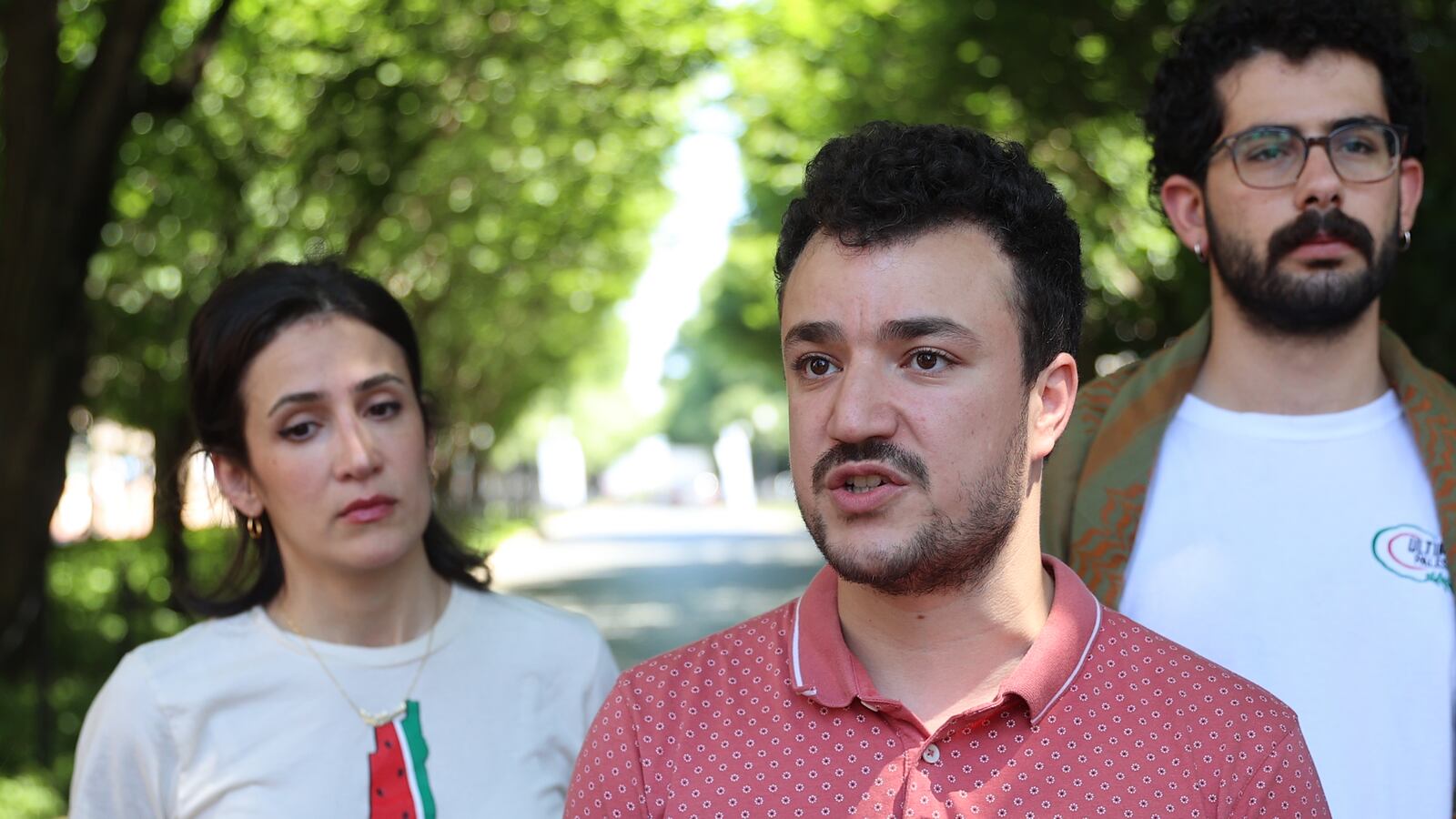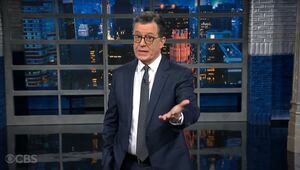On Friday, attorneys for Columbia University graduate student and pro-Palestine activist Mahmoud Khalil released video of their client’s controversial arrest by federal agents on March 8.
In the video, obtained by the Associated Press, at least three agents confront Khalil in the lobby of his apartment building. After telling him that he is “going to be under arrest” and to “turn around” and “stop resisting,” Khalil replies, “There’s no need for this. I’m going with you. No worries.”
Khalil’s wife, Noor Abdalla, an American citizen who is eight months pregnant, asks him in Arabic how she can contact him. Khalil tells her to call his lawyer. When she asks the agents to identify themselves, one replies: “We don’t give our names.”
Khalil is a lawful U.S. resident who was arrested because the Trump administration claims he engaged in “pro-terrorist” activity. His attempted deportation and revocation of his green card has spurred immense criticism over the government’s potential violations of his First Amendment rights, including from right-wing commentator Ann Coulter.
Khalil’s lawyers, who say ICE agents initially were acting on an order to revoke his student visa but then had to change plans once they realized he didn’t have one, have made other serious allegations against the government in court documents.
Among them, the AP notes, was federal agents denying Khalil’s request to talk with a lawyer once he was taken into custody. The lawyers write that Khalil was handcuffed, shackled, and taken to New Jersey early Sunday, only to be sent back to New York. On Sunday afternoon, he was flown to Dallas, then to Alexandria, Louisiana.
Khalil’s current location is a rural ICE detention complex about 100 miles northwest of Baton Rouge.
According to the lawsuit, Khalil is “also very concerned about missing the birth of his first child.” It states he was set to start a job with health benefits in April.
“It is very important to Mr. Khalil to be able to continue his protected political speech, advocating and protesting for the rights of Palestinians—both domestically and abroad,” his lawyers added.








